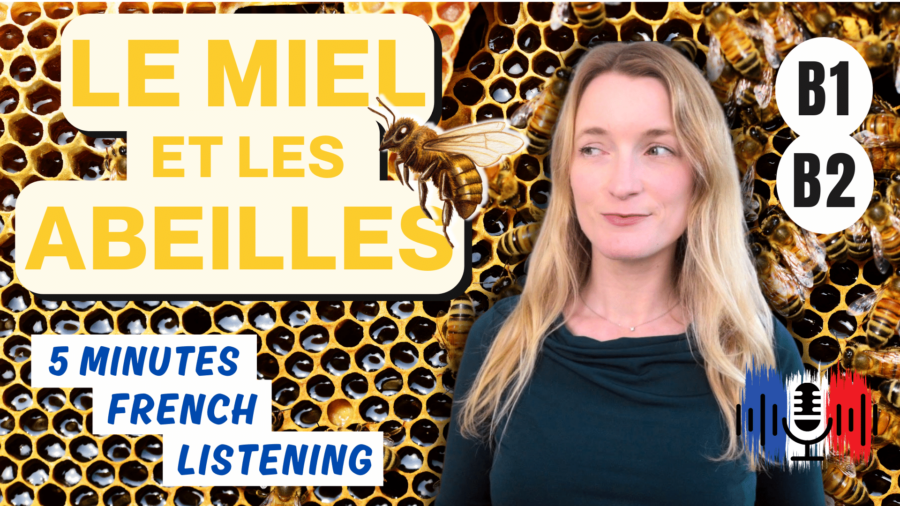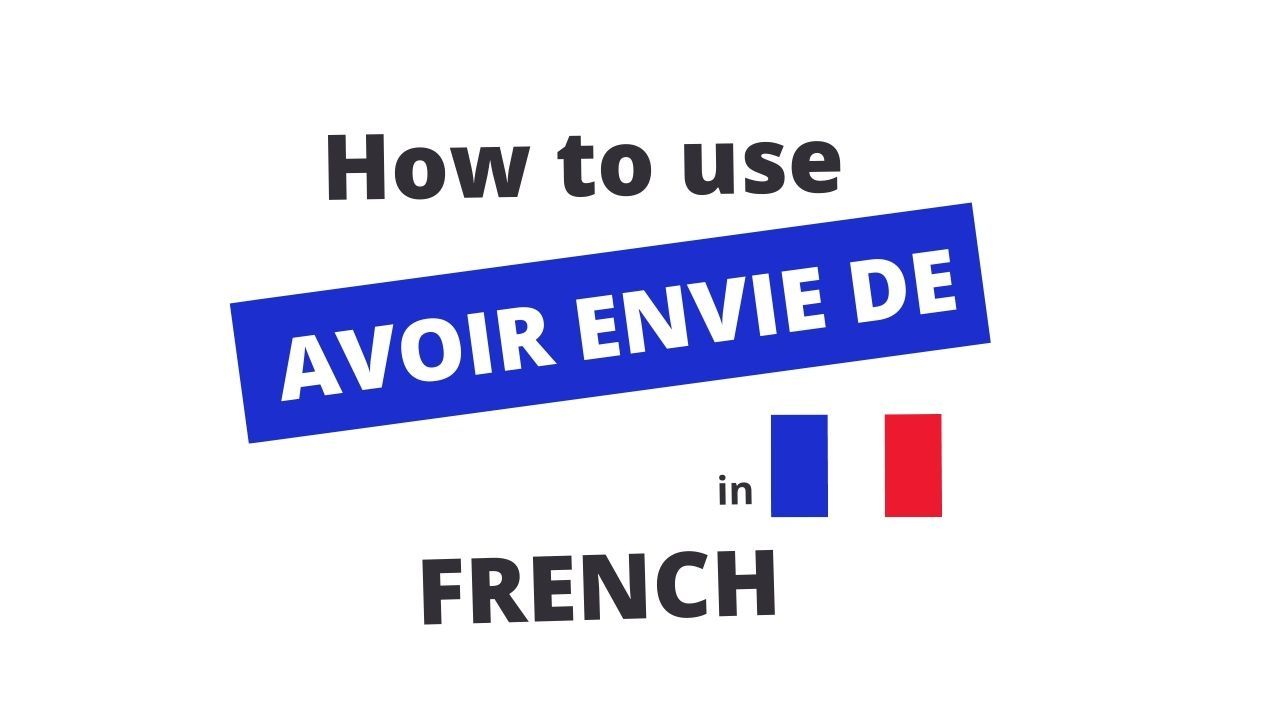
Menu
Close
Avoir envie de means “To want to” in English. It’s one of the many common French expressions with the verb Avoir – To have. To want has two translations in French.

Avoir is an irregular verb but it’s also one of the most used verbs in French. You must know it by heart.
Avoir – Present tense:
J’ai – I have
Tu as – You have
Il a – He has
Elle a – She has
On a – We have
Nous avons – We have
Vous avez – You have
Ils-Elles ont – They have
But what about Avoir envie de?
The word envie is never conjugated. The only word that changes a little bit, besides avoir, is DE. DE will change to D’if the following word starts with a vowel or a silent H.
AVOIR (conjugated) + ENVIE + DE or D’
Avoir envie de – Present tense:
J’ai envie de/d’ – I want to
Tu as envie de/d’ – You want to
Il a envie de/d’ – He want to
Elle a envie de/d’ – She want to
On a envie de/d’ – We want to
Nous avons envie de/d’ – We want to
Vous avez envie de/d’ – You want to
Ils-Elles ont envie de/d’ – They want to
Building a sentence with avoir envie de is fairly easy, the only thing that you should know is that it can be followed by an infinitive verb or by a noun.
Let’s see a few examples when avoir envie de is followed by an infinitive verb:
J’ai envie d’aller à la plage
I want to go to the beach
Tu as envie de partir en vacances
You want to go on vacation
Il a envie de regarder la télé(vision)
He wants to watch TV
Elle a envie d’apprendre le français
She wants to learn French
On a envie de déménager
We want to move out
Nous avons envie de dormir
We want to sleep
Vous avez envie de changer de travail
You want to change job
Ils ont envie de jouer dehors
They want to play outside
Elles ont envie d’acheter une moto
They want to buy a motocycle
When avoir envie de is in a negative sentence, the first part of the negation will be before the verb avoir, the second part will be after the verb avoir.
Remember that French negation has many forms: ne … pas, ne … plus, ne … jamais, …
Lets’ see the sentences from above turned into negative sentences with NE … PAS.
Je n’ai pas envie d’aller à la plage
I don’t want to go to the beach
Tu n’as pas envie de partir en vacances
You don’t want to go on vacation
Il n’a pas envie de regarder la télé(vision)
He doesn’t want to watch TV
Elle n’a pas envie d’apprendre le français
She doesn’t want to learn French
On n’a pas envie de déménager
We don’t want to move out
Nous n’avons pas envie de dormir
We don’t want to sleep
Vous n’avez pas envie de changer de travail
You don’t want to change job
Ils n’ont pas envie de jouer dehors
They don’t want to play outside
Elles n’ont pas envie d’acheter une moto
They don’t want to buy a motocycle
When avoir envie de is followed by a noun, a better translation for it would be to feel like when talking about food and drinks.
When used to talk about objects, vacations, etc. It translate to to want.
J’ai envie d’un café
I feel like a coffee
Tu as envie d’une pizza
I feel like a pizza
Il a envie de vacances
He wants a vacation
Elle a envie d’un nouveau téléphone
She wants a new phone
You can ask a question including avoir envie de in different ways:
If we look at the question, what do you want to do?
The casual question: Tu as envie de faire quoi ?
With Qu’est-ce que: Qu’est-ce que tu as envie de faire ?
With the inversion: Qu’as-tu envie de faire ? Which one to use? Use the first or the second one, the third one with the inversion is used more in formal conversation, writing.
